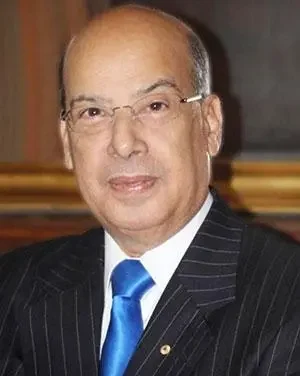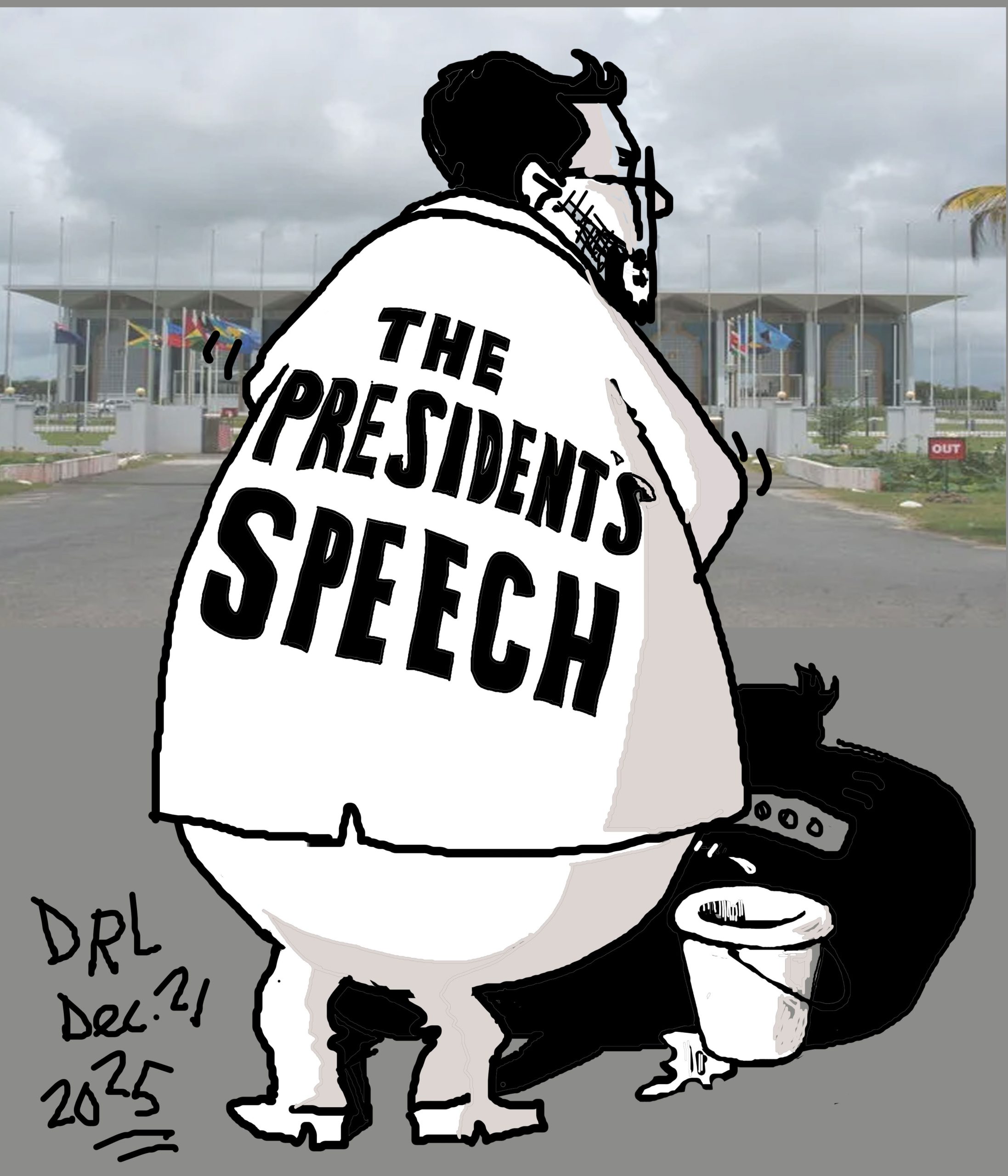Latest update December 25th, 2025 12:40 AM
CARICOM finalizes Arrest Warrant Bill and Gang Database in bid to strengthen regional security
Nov 23, 2024 News
Kaieteur News –Prime Minister of Trinidad and Tobago Dr. Keith Rowley on Friday announced the completion of the CARICOM (Caribbean Community) Arrest Warrant Bill, a legal framework aimed at preventing criminals from evading justice across borders. The bill ensures consistent legal consequences for crimes committed within the region, reinforcing regional security and accountability.
Dr. Rowley made the announcement during the second regional symposium, focused on, ‘Violence as a Public Health Issue – the Crime Challenge,’ held at the Arthur Chung Conference Centre (ACCC) in Georgetown.
Rowley explained that the new legislation addresses gaps that previously allowed criminals to escape justice by crossing borders within the region.
“Our little criminal punks must now know that every CARICOM tertiary the law applies to them equally with respect and as soon as we implement the laws that with respect to warrants for their restraints apprehension, in anticipation of successful prosecution that there are no safe harbours in any of our CARICOM territories,” Dr. Rowley said.
This process, known as extradition, ensures that individuals found in one country can be surrendered to another for trial or punishment. Dr. Rowley expressed his eagerness to implement the Arrest Warrant Bill swiftly, congratulating the CARICOM legal team for their work.
The Prime Minister also provided an update on the Advanced Passenger Information (API) and Passenger Name Record (PNR) bills, which are nearing completion. These initiatives will enable more efficient cross-border cooperation, improving data sharing and passenger tracking to combat transnational crime.
“These are tools that will facilitate law enforcement in a very efficient way and allow law enforcement to have a little bit of an upper hand on those who plan crime against our population,” he said.
Furthermore, steps are being taken to strengthen intelligence-sharing across borders. This will allow law enforcement to more effectively investigate, apprehend, and prosecute criminals. Rowley stressed the importance of identifying “known bad actors” before they can execute their plans, ensuring a more effective response to those who choose crime as a way of life.
Meanwhile, CARICOM IMPACS has established a Caribbean Gang Database to enhance regional law enforcement cooperation. The database will be a vital resource for sharing intelligence across member states. Additionally, research initiatives like the “Pathway to Policy” project are underway to address issues such as firearms trafficking and violence by integrating public health and security responses. CARICOM IMPACS has also conducted consultations to identify gaps in national and regional mechanisms to combat corruption and illicit finance.
The Economic and Social Burden of Crime
At Friday’s symposium, President Irfaan Ali spoke of the significant economic and social burden of crime in the Caribbean, citing a 2017 IMF (International Monetary Fund) report that found violent crime to be widespread and deeply impactful. Ali noted that healthcare is one of the sectors most affected, as resources diverted to address crime limit the capacity to meet the population’s healthcare needs, ultimately harming public health and long-term investments in the sector.
The 2017 IMF study revealed that, on average, 40 percent of the Caribbean population views crime and security as the region’s most pressing issue, even more so than poverty and inequality. A more recent survey by the Inter-American Development Bank found that the direct cost of crime and violence in Latin America and the Caribbean reached 3.44 percent of the region’s GDP in 2022.
President Ali pointed out that the economic burden of crime could account for up to 80 percent of the region’s education budget. If crime were reduced, the money saved could allow for an 80 percent increase in the education budget, transforming the region’s investment in future development.
Guyana’s president also highlighted the importance of addressing the root causes of crime. He revealed that research shows that 85 percent of violent crimes are committed by men, many of whom were behind in education and job opportunities.
“I’ll give you one example, 66 percent of students at the University of Guyana are now women, and when you look at the scholarship program 70 percent of the total scholarships available which is in the last four years is more than 30,000 are taken up by woman,” he said noting that “The consequential event is that 85 percent of the violence crimes are committed by our male, so where their attention is being directed to? Definitely not education here, because the stats are not demonstrating that.”
(CARICOM finalizes Arrest Warrant Bill and Gang Database in bid to strengthen regional security)
Discover more from Kaieteur News
Subscribe to get the latest posts sent to your email.
Similar Articles
Listen to the The Glenn Lall Show
Follow on Tik Tok @Glennlall
Your children are starving, and you giving away their food to an already fat pussycat.
Sports
Dec 25, 2025
…Elite League champions to face Monedderlust Kaieteur Sports – Slingerz FC will step onto the turf at the National Training Centre at Providence on Boxing Day with more than just another match...Features/Columnists
Dec 25, 2025
(Kaieteur News) – Ah, Christmas—the season of goodwill, good cheer, and, let’s not forget, good riddance! It’s that magical time when even the most hardened scoundrel can decorate a tree, stuff a chicken, and pretend they aren’t the Grinch in human form. This year, in the spirit of...Sir. Ronald Sanders
Dec 21, 2025
By Sir Ronald Sanders (Kaieteur News) – The recent proclamation issued by the Government of the United States, announcing its intention to suspend the entry of nationals of Antigua and Barbuda and the Commonwealth of Dominica, effective at 12:01 a.m. on 1 January 2026, has understandably caused...The GHK Lall Column
Dec 25, 2025
(Kaieteur News) – Merry Christmas, fellow citizens. Similar wishes are extended to strangers, visitors, partners, and others in Guyana’s new and widening commercial family. Six years of national richness ought to mean that Guyanese of all stations are in a better state financially, a happier...Publisher’s Note
Freedom of speech is our core value at Kaieteur News. If the letter/e-mail you sent was not published, and you believe that its contents were not libellous, let us know, please contact us by phone or email.
Feel free to send us your comments and/or criticisms.
Contact: 624-6456; 225-8452; 225-8458; 225-8463; 225-8465; 225-8473 or 225-8491.
Or by Email: glennlall2000@gmail.com / kaieteurnews@yahoo.com














